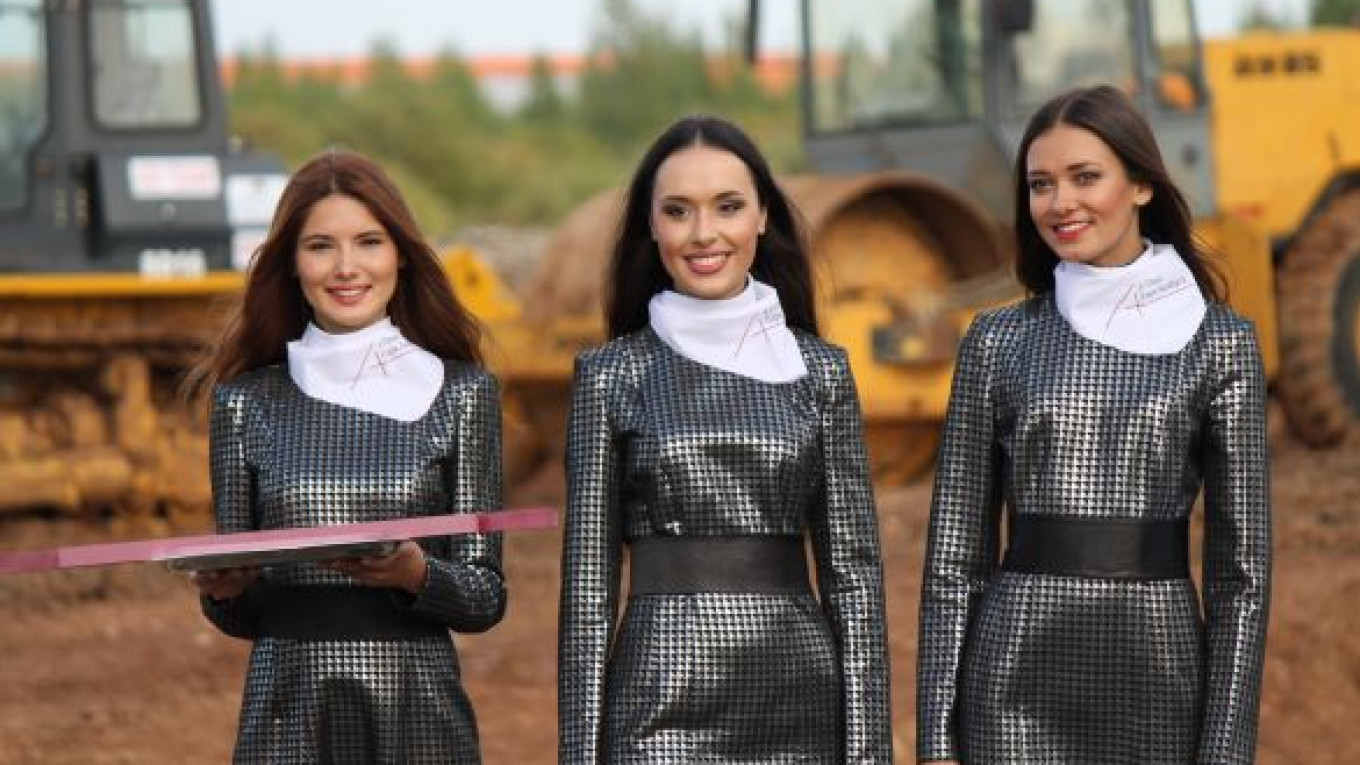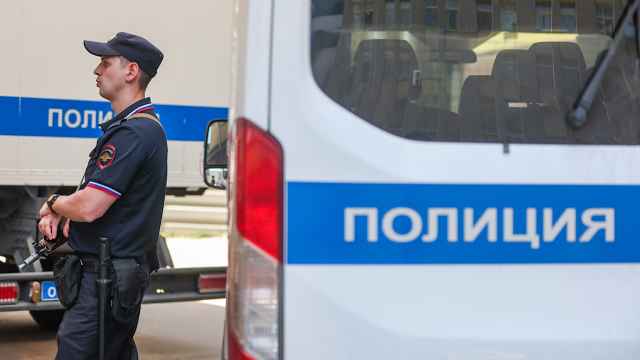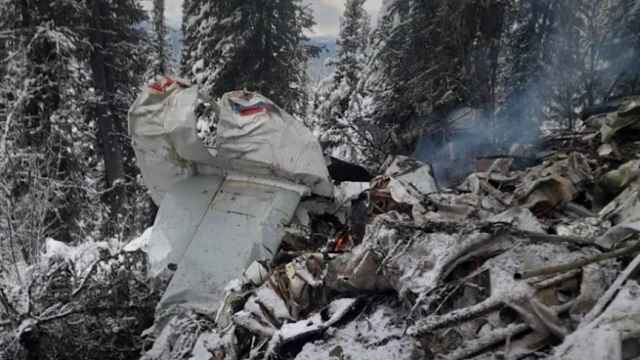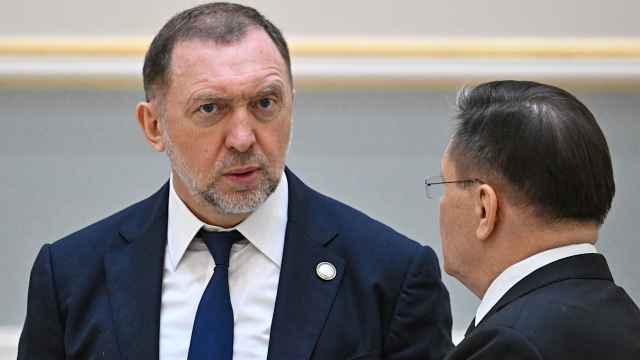A St. Petersburg developer has become the first private company to agree to fund and build an industrial park facility at the Alabuga Special Economic Zone in Tatarstan.
Tatarstan President Rustam Minnikhanov, Economic Development Minister Alexei Ulyukayev and representatives of resident companies and stakeholders attended the ground breaking ceremony marking the start of construction of the $200 million A Plus Park on Saturday.
A Plus Alabuga, a subsidiary of privately owned construction firm A Plus Development, will invest the funds to build three facilities totaling 200,000 square meters, which will be partitioned into smaller warehouses and production spaces — a turn key solution for companies looking for floor space but not yet ready to build their own.
Economic Development Minister Ulyukaev lauded the private initiative.
"Our job is to create [attractive] conditions for new businesses, and we are thankful to and offer our support to the investor A Plus," Minnikhanov said.
While there will be no discounts on leasing a warehouse directly from the developer, new businesses will be able to take advantage of a 10-year tax holiday, reduced income tax, simplified customs procedures and inexpensive labor offered by the special economic zone and communities around it.
The average monthly wage in Alabuga is about $400, and staff are trained in advance, ready to work for new companies as soon as they open their doors.
"What [the country] needs the most is new businesses, new technologies, new ways of looking at things. For this purpose, building industrial parks is an excellent solution, because each new [industrial park] means tens of new businesses, which will be producing value-added products, helping us to move away from the natural resources economy to a [technology-rich] economy," Ulyukayev said.
"This is a place where positive political, economic, demographic and location factors combine; where an established domestic and international reputation and beneficial tax and customs regime, strong government support, affordable land, and established infrastructure combine to provide highly attractive opportunities for manufacturing and industrial companies," said David Izett, chief operations officer of real estate services firm Cushman & Wakefield, which was selected to manage the future facility.
The first 50,000 square meter part of the three-stage project, scheduled for completion in the first quarter of 2014, has already been leased out, with more businesses lining up for the rest of the space, set to be completed in 2017.
"As you can see, this is not a virtual idea with a photoshop presentation. It is a real project," said Timur Shagivaleyev, CEO of the Alabuga Special Economic Zone.
It is important for the economic development minister and the president to see the place and appreciate the developments first hand, he added.
Special Economic Zone Alabuga was set up in an area originally planned as home to the largest tractor factory in the U.S.S.R., with an independent power plant, gas pipeline and rail link.
The tractor-making project was abandoned from 1991 to 2005, when the government decided to use the area to set up a special economic zone. It was named "the best region for conducting business in Russia," according to Ernst & Young and one of the top 40 special economic zones in the world, according to the Financial Times Direct Investment Magazine.
Alabuga belongs to the federal government, 51 percent, and Tatarstan Republic, 49 percent, who invested a total of $600 million. Currently it has 35 business residents who have committed $3 billion in investments, with $1.3 billion already in play.
Contact the author at [email protected]
A Message from The Moscow Times:
Dear readers,
We are facing unprecedented challenges. Russia's Prosecutor General's Office has designated The Moscow Times as an "undesirable" organization, criminalizing our work and putting our staff at risk of prosecution. This follows our earlier unjust labeling as a "foreign agent."
These actions are direct attempts to silence independent journalism in Russia. The authorities claim our work "discredits the decisions of the Russian leadership." We see things differently: we strive to provide accurate, unbiased reporting on Russia.
We, the journalists of The Moscow Times, refuse to be silenced. But to continue our work, we need your help.
Your support, no matter how small, makes a world of difference. If you can, please support us monthly starting from just $2. It's quick to set up, and every contribution makes a significant impact.
By supporting The Moscow Times, you're defending open, independent journalism in the face of repression. Thank you for standing with us.
Remind me later.






